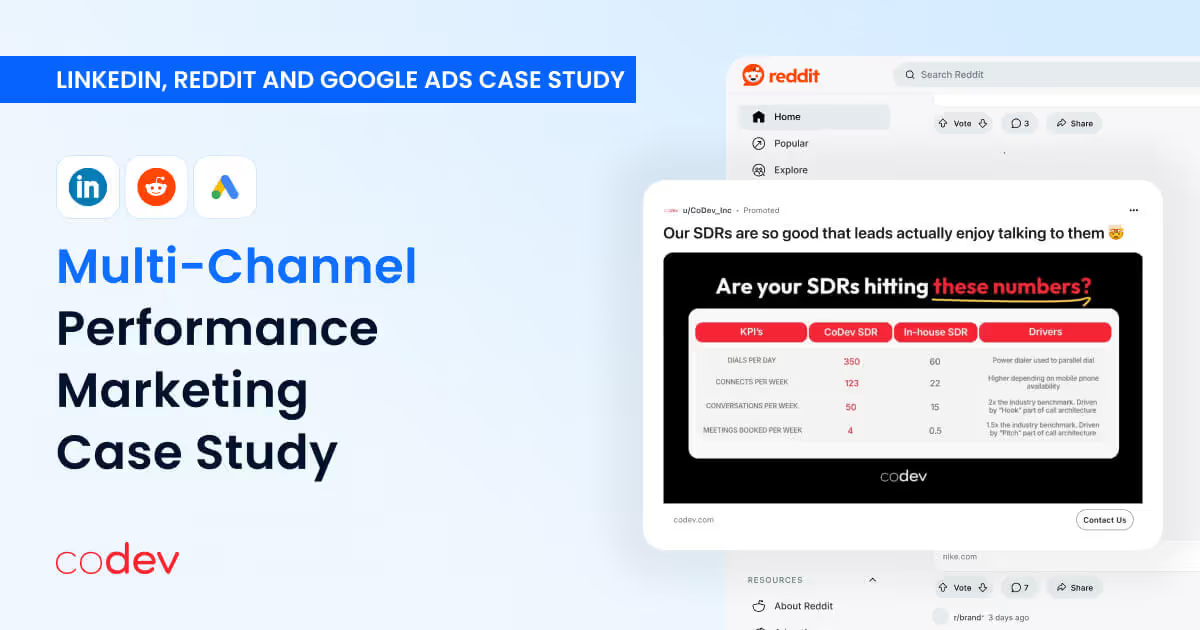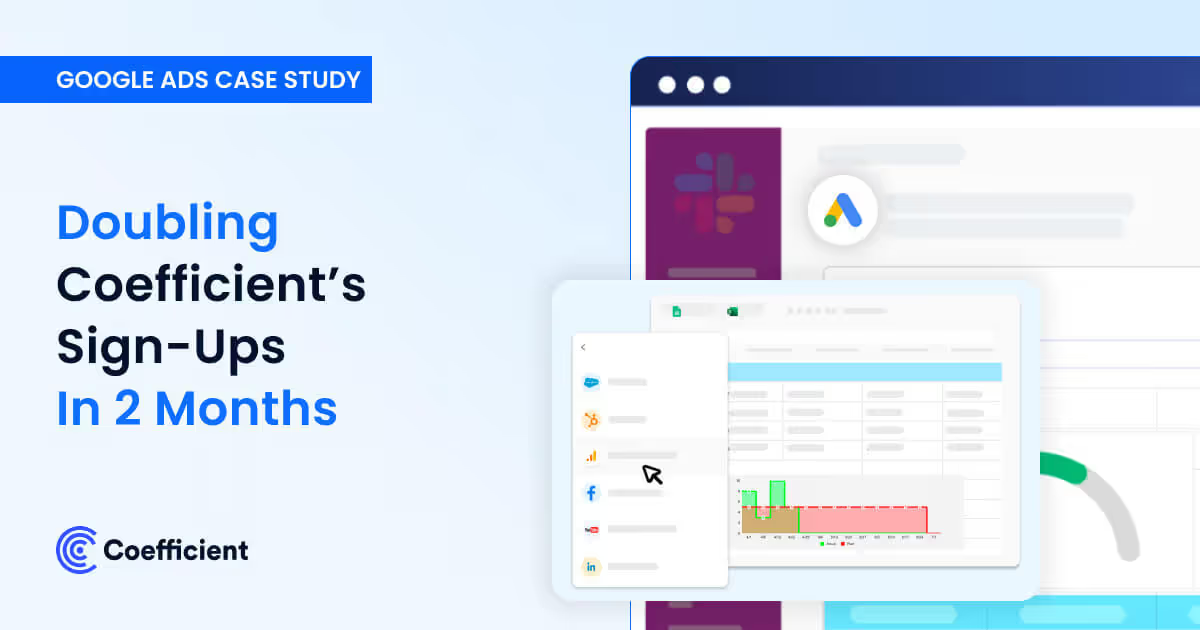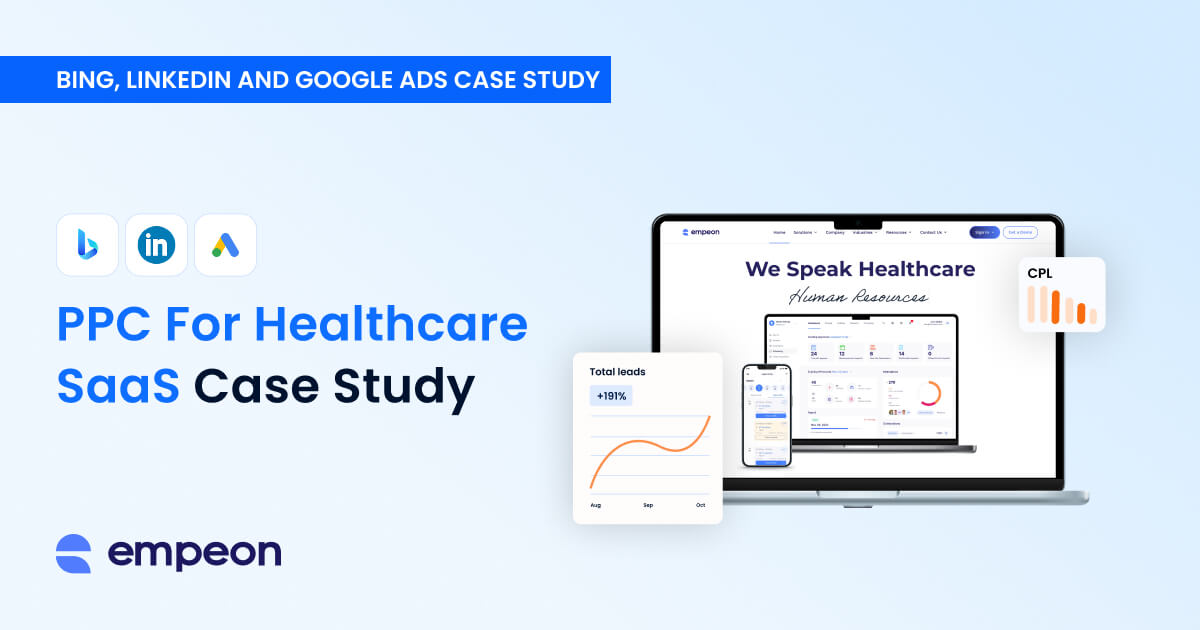SaaS PPC Case Study
23x Increase in Sign-Ups and 72% Lower CPL With Google Ads
About
TeamSlide
TeamSlide is a PowerPoint Slide Library SaaS that integrates with existing content systems, allowing teams to quickly find, update, and share the right slides. It keeps presentations on-brand and saves hours lost digging through folders.
They were competing in an extremely competitive industry and struggled to stand out against some of their more established competitors, so they decided to bring InterTeam in.
After three months, we had put together some impressive results:
- 23x more sign-ups
- Lowered CPL by $676
- Multiple weekly booked meetings
This SaaS PPC Case Study shows how we built a system that scaled their ads into a reliable growth channel.
Why They Chose InterTeam as Their Paid Ads Partner
TeamSlide’s paid ads weren’t working. CPLs were high, leads weren’t converting, and the budget was being wasted.
They needed an agency with real B2B SaaS experience that could spot what was broken and rebuild their account around sign-ups and bookings. That’s what led them to InterTeam.
They first discovered us through one of our own Reddit campaigns, a channel we’ve used to consistently generate SaaS leads. After reviewing our case studies, they saw our targeted approach was the right fit and reached out.
As with every new client, we started with a consultation and a free audit of their Google Ads account to uncover the gaps and plan a strategy to fix them.
The Audit: Tracking Issues, Weak Keywords, Missed Opportunities
Upon starting the audit, the first problem we found was tracking.
They were using a Calendly form embedded directly on their website. Conversion tracking was not working on this feature due to the iframe that the calendar was embedded in. This blocked us from tracking most of their conversions, which limited the past data we could pull from.

Despite this tracking issue, we were still able to identify a few key areas where TeamSlide was underperforming. Most of their problems came down to the keywords they were targeting. Almost all keywords were low quality and included:
- Irrelevant competitor terms with no buying intent
- Foreign-language or student queries
- Broad terms that wasted budget without a clear intent
When we dug deeper, we found most of these issues were a result of using phrase match targeting, which pulled traffic that was never going to convert while ignoring high-intent keyword opportunities.
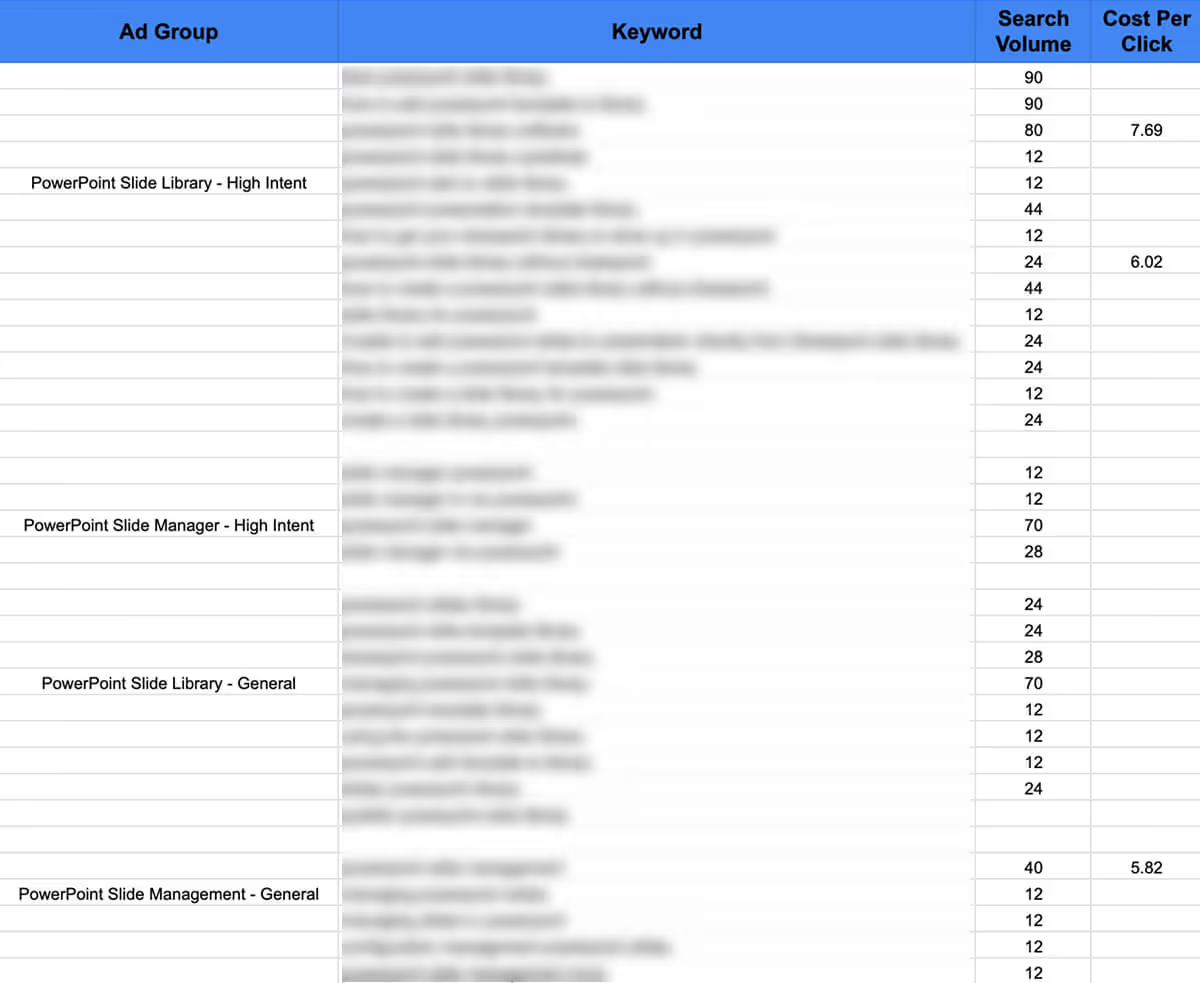
One of their biggest issues was their competitor keywords. They were bidding on irrelevant competitor terms, but they also weren't doing anything to protect their own brand name. They had competitors appearing above them for their own branded searches.
With that information in hand, we pitched them a plan that refined their keyword targeting, protected their branded keywords, and scaled their conversion rates across sources with retargeting.
Building a Targeted Google Ads Strategy
TeamSlide loved the audit. We showed them exactly where their account was falling short and gave them a clear roadmap to better results. With the green light to move forward, we rolled out their campaign in three phases.
Phase 1 - Fixing Tracking Issues
As we uncovered during the audit, TeamSlide had some tracking issues we needed to fix before we could extract any meaningful data.
We started by removing the iframe blocking conversion tracking from their Calendly form. This started to bring in some additional data and allowed us to start rolling out the other phases of our strategy. However, it quickly became obvious there were other issues at play.
As a result of our efforts, we saw notable increases in traffic over the first two months, but conversions weren’t scaling the way we expected.
At this point, we needed to step back and take a second look at tracking. What we found was that TeamSlide had a second hidden tracking issue caused by their cookie banner. It had been updated to deny consent for all visitors, stopping Google Ads conversions from firing altogether.
On top of that, the banner itself was formatted incorrectly, which compounded the issue and broke campaign tracking. In the end, we determined it wasn’t that our campaigns weren’t driving conversions, but rather our tracking just wasn’t recording them.
Luckily, once the issue was identified, fixing it was simple. We ran a complete audit of the banner, optimized it for approvals, and set default consent settings to allow cookies for visitors.
At the same time, we created more reliable triggers for both top-of-funnel and down-funnel actions. We set up conversion tracking for sign-form submissions along with dedicated tracking triggers for booked meetings.
This gave us a full view of the funnel and the ability to optimize toward higher-value goals down the line.
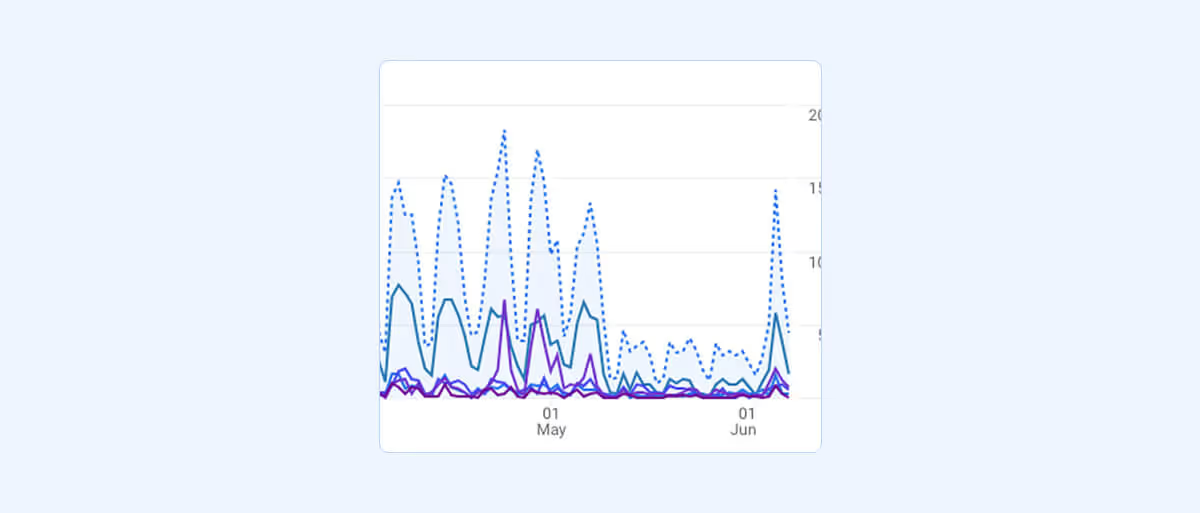
With tracking fixed, the data finally lined up with what we were seeing in traffic.
For the first time, TeamSlide had a reliable flow of trial sign-ups and booked meetings from paid ads. Just as important, we now had clean data to scale performance with confidence.
Phase 2 – Search Campaigns With Better Keyword Targeting
With tracking finally fixed, we shifted focus to building a search strategy around high-intent terms. We started by moving away from phrase match targeting and instead built out tightly structured campaigns using exact match keywords, focusing on terms that signaled high buying intent.
Our new keyword plan targeted three verticals:
High-Intent Keywords

During our audit, we found that most of the keywords TeamSlide had been targeting were driving wasted clicks. However, we were able to extract some insights and found that the best CTRs came from searches around the “library” theme.
From there, we dug even deeper and uncovered three keyword themes worth building around
- PowerPoint Slide Library
- PowerPoint Slide Manager
- PowerPoint Management
We then split these into general vs. high-intent to make our targeting even sharper, allowing us to align our ad copy with intent. This strategy helped us improve click-through and conversion rates of our search ads.
Competitor Keywords
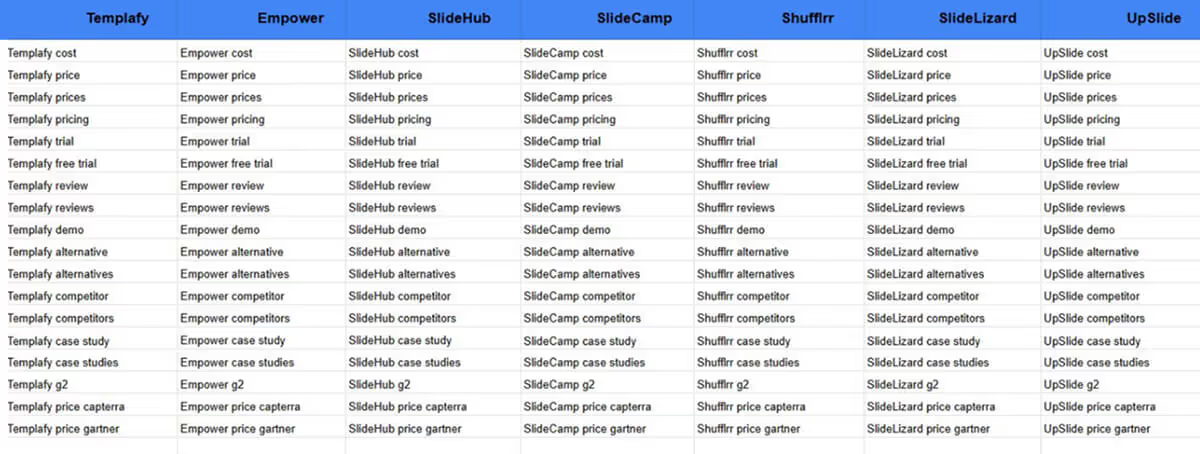
Before working with InterTeam, TeamSlide had been running a weak competitor targeting strategy. They were targeting some competitor keywords, but they were all low quality with no buying signals.
At InterTeam, we target only high-quality competitor keywords that indicate users are actively comparing options. Using our Competitor Keyword Generator, we built out a list of these competitor keywords, including queries like Templafy Alternative and Templafy Review.
You can check out our Complete Guide to Targeting Competitor Keywords on Google Ads for more advice and best practices.
Branded Keywords

Along with targeting competitor keywords, we also wanted to make sure our own keywords were being protected. This was something TeamSlide had completely ignored before bringing us on, and it was obvious. They had competitors ranking above them for their own branded searches.
To defend against this, we launched branded campaigns to ensure TeamSlide stayed at the top of its own searches.
With tighter keyword targeting focusing on high-intent keywords, competitor terms, and branded searches, our new strategy ensured TeamSlide reached only high-intent audiences so that ad spend was focused on audiences most likely to take action.
Phase 3 – Retargeting Across Google and Reddit
With search campaigns driving higher-quality traffic, we then focused attention on retargeting visitors to bring back qualified audiences that had shown interest but hadn’t yet resulted in a conversion.
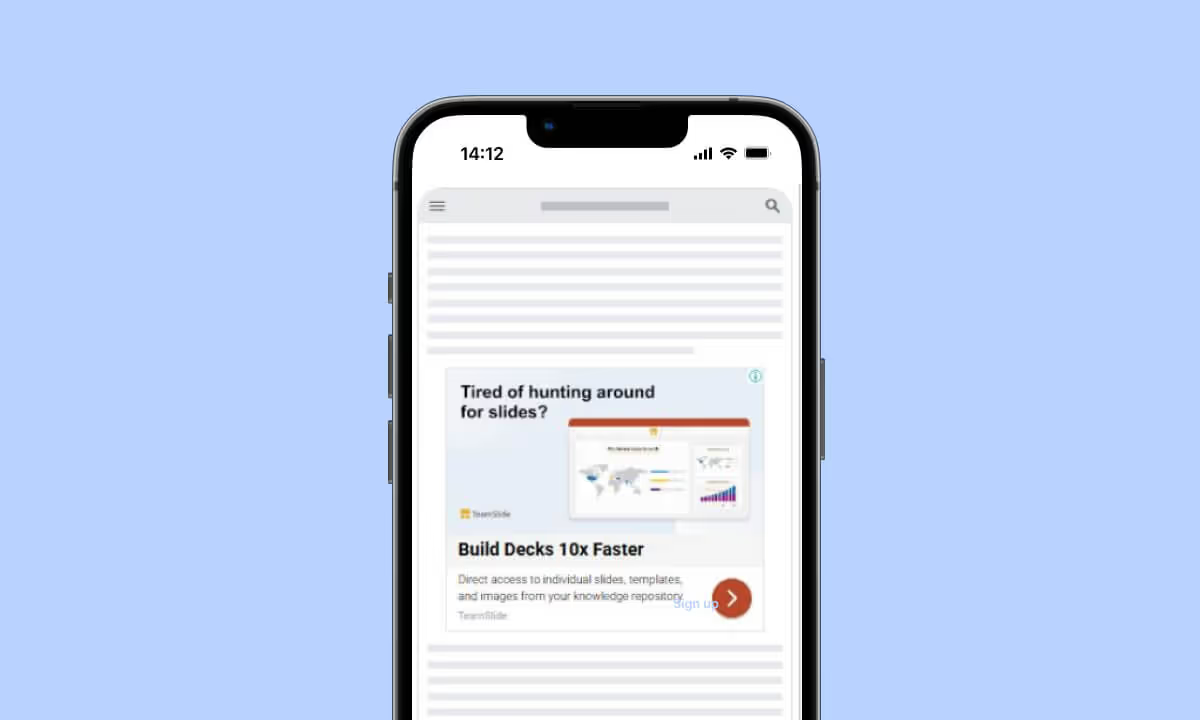
We launched campaigns on Google Display, Demand Generation, and Reddit Ads, testing HTML5, video, and image creatives. We focused on highly qualified retargeting lists built around high-intent signals, like people who had visited key pages.
On Reddit, we refined our targeting further by focusing on niche communities tied directly to TeamSlide’s ICP, such as the PowerPoint and SharePoint subreddits. This added layer allowed us to reach qualified users that were actively participating in conversations tied to the offer.
Despite the smaller budget that came with tighter audiences, our retargeting campaigns boosted conversion rates across all channels, giving TeamSlide a proven strategy they could scale.
If you’re exploring retargeting for SaaS, see our full Retargeting Guide.
Final Results: SaaS PPC as a Reliable Growth Channel
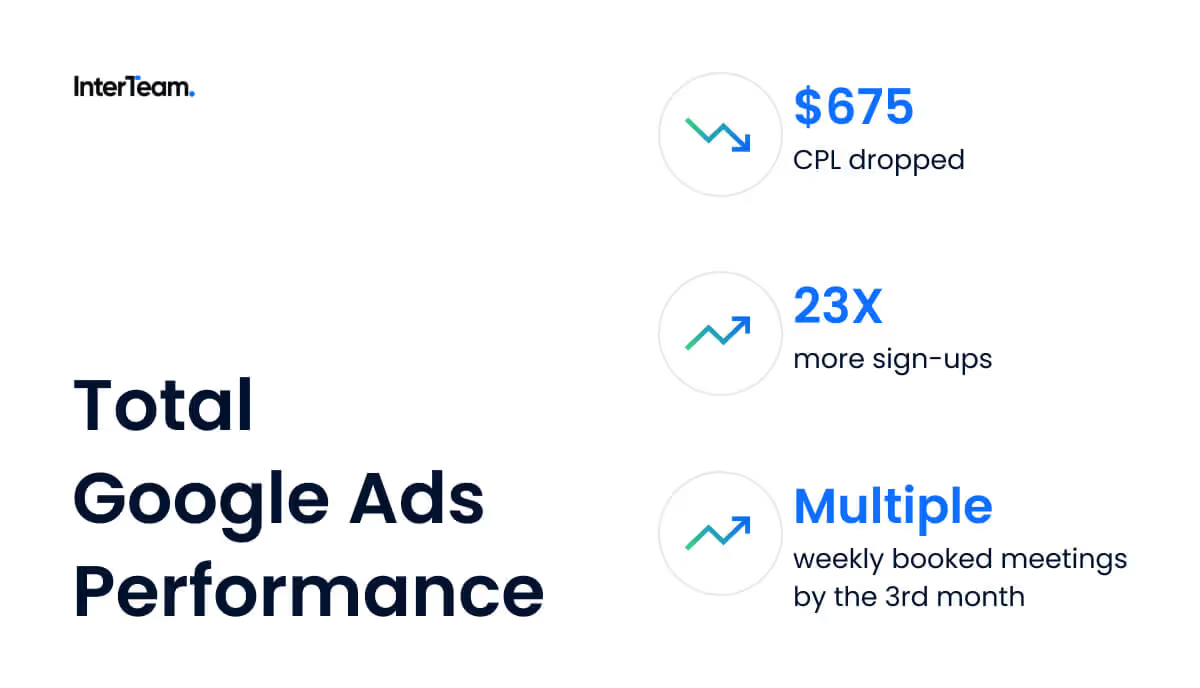
Here is how TeamSlide's PPC campaigns performed before and after bringing on InterTeam:
- CPL dropped by $676
- 23x more Sign Ups
- Multiple weekly booked meetings by the 3rd month.
For the first time, TeamSlide’s ads were driving reliable growth instead of wasted spend. The PPC strategies we built gave them a steady pipeline of new trials and meetings backed by clean data they could scale with confidence.
Need Help With SaaS PPC?
We help B2B SaaS teams turn paid ads into a reliable growth channel. For TeamSlide, that meant 23x more sign-ups and a 72% drop in CPL.
If tracking is broken, spend is leaking, or leads aren’t scaling, we’ll build the system that changes that.
FAQs
Template question
Template text answer









